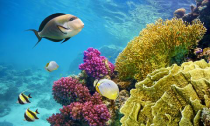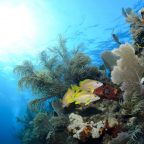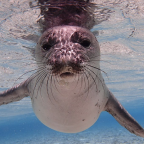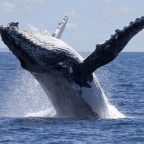
Covering a swath of ocean larger than Peru around coral reefs, golden beaches and rocky atolls in north Hawaiʻi, Papahānaumokuākea Marine National Monument is one of the world’s largest marine protected areas — and the biggest in North America.This UNESCO World Heritage Site is home to endangered Hawaiian monk seals (Monachus schauinslandi), two dozen species of whales and dolphins, and green sea turtles (Chelonia mydas), among thousands of other creatures.
Even as countries fall well short of meeting a UN goal to protect 10% of the world’s oceans by the end of this year, marine protected areas (MPAs) like Papahānaumokuākea show what effective conservation can look like, said Aulani Wilhelm, who worked to build and manage the MPA as an official with the US National Oceanic and Atmospheric Administration.“The stability of the ocean drives the stability of all living systems on the planet,” Wilhelm, now a senior official with the NGO Conservation International, based in Hawaiʻi, said. “It’s about making enough of the ocean function as close to its natural state as possible to lend resiliency to the ocean — and planet. That’s why MPAs are a critical point of the conversations countries need to be having about the future.”
Created in 2006 and then expanded in 2016, Papahānaumokuākea prohibits large-scale extractive activities within its waters, such as industrial fishing and deep-sea mining. Some recreational fishing is allowed, along with Indigenous Hawaiian cultural practices and scientific research.These protections should allow coral reefs to regenerate and increase the amount and diversity of fish and birds in the MPA and surrounding waters, while still allowing some local people to make a living from small-scale fishing or ecotourism, conservationists said.
As the COVID-19 pandemic underscores the need to better manage humans’ relationships with the natural world, and climate change accelerates ocean habitat loss, the urgency to build new and more effective MPAs has never been higher, said Liz Karan, who directs a project to promote establishing MPAs in international waters for the U.S.-based Pew Charitable Trusts.
“It’s actually in a country’s best interest to invest in conservation efforts to ensure long-term sustainability, food security and livelihoods,” Karan said.















Social Profiles